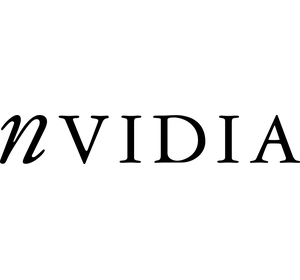$AAPL $GOOGL $META
#Apple #TimCook #DonaldTrump #TechLeadership #USChinaTrade #TradeWars #BigTech #SundarPichai #MarkZuckerberg #CompetitiveAdvantage #CorporateStrategy #TaxReform
Apple CEO Tim Cook demonstrated a masterclass in corporate diplomacy during Donald Trump’s presidency, deftly navigating a challenging political environment marked by trade wars and tax reforms. One of Cook’s most notable strategies was his ability to engage Trump in comprehensive, fact-based discussions that leveraged Apple’s key contributions to the U.S. economy, including job creation and fiscal investments. While many CEOs were cautious about their public interactions with the former president, Cook embraced the opportunity to meet directly with him and influence policies that were crucial for Apple’s continued global dominance. By targeting tariff exemptions for key Apple products, Cook shielded the company from increased costs linked to U.S.-China trade tensions, ensuring that the iPhone and other flagship devices retained their competitive pricing relative to peers. From a financial perspective, this reduced Apple’s exposure to potential margin erosion, which has consistently kept its operating margins strong over the past decade. Markets reacted positively to these developments, with $AAPL shares climbing annually through the Trump presidency, reflecting investor confidence in Cook’s adept stewardship during volatile times.
The strategy did not stop at deployment of sharp negotiation tactics. Cook also highlighted Apple’s commitment to manufacturing within the U.S., such as the company’s $1 billion investment in an Austin, Texas, manufacturing site. This move allowed Apple to sidestep anti-China rhetoric and position itself as a patriotic corporate citizen at a time when Trump’s administration scrutinized global supply chains and incentivized domestic production. While Apple didn’t make sweeping overhauls to its reliance on Chinese producers, it managed to pacify political pressures while keeping operations efficient. Financial analysts note that these initiatives not only saved the company millions in potential tariffs but also helped maintain shareholder value amid a turbulent policy landscape. Shareholders, in turn, benefitted from company policies that allowed it to maintain its high free cash flow, which supported buybacks that bolstered per-share profits amid macro uncertainty in other areas.
What makes Cook’s approach even more noteworthy is the ripple effect it seems to have had across Silicon Valley. Reports suggest other tech leaders, such as Sundar Pichai of $GOOGL and Mark Zuckerberg of $META, are adopting similar strategies in dealing with policymakers. Pichai, for example, has pushed narratives emphasizing Google’s training programs and robust infrastructure buildouts in rural America, which mirror some of the data-centric messaging Cook employed. Zuckerberg, though under scrutiny for regulatory issues tied to social media, has publicly emphasized Facebook’s role in small business empowerment, aligning with governmental economic priorities. This convergence toward proactive political engagement underscores a broader trend in corporate governance: top tech executives are increasingly recognizing the financial and market impacts of maintaining amicable relationships with policymakers. This not only helps mitigate economic and reputational risks but also fosters an environment where the government is less inclined to impose debilitating regulations.
From a macro perspective, Cook’s tenure creates a case study in how managing geopolitical risks can enhance competitive positioning and offer a buffer against external threats. For investors, Apple’s sustained performance during tricky operational circumstances validates a growing need to evaluate executive leadership as part of fundamental analysis. Cook’s strategy illustrates that external shocks like trade tensions or policy hostilities can be mitigated if a company is prepared to engage constructively at the governmental level. Looking ahead, as the tech industry continues to face challenges like antitrust legislation and potential decoupling of the U.S.-China economy, leaders will likely rely on the “Cook playbook” to steer their firms safely. For shareholders, this trend signals that companies capitalizing on diplomacy and data-driven advocacy are better positioned to weather volatile economic conditions, keeping investor sentiment—and valuations—stable.











Comments are closed.